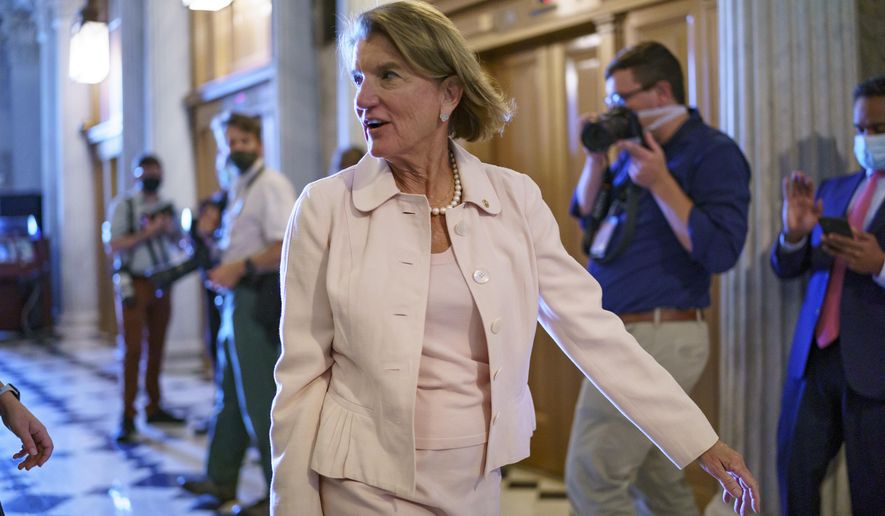Republican lawmakers sounded the alarm on Wednesday over the White House attempts to strong-arm state and local governments into spending infrastructure money on progressive pet initiatives.
They accused Transportation Secretary Pete Buttigieg of crafting new byzantine rules and regulations governing how money from President Biden’s $1.2 trillion bipartisan infrastructure package can be spent. The directives reflect Mr. Biden’s political interests, instead of those laid out by lawmakers within the infrastructure bill.
“It is becoming clearer that they are less concerned about properly implementing this infrastructure law and more focused on shoehorning it into their woke agenda,” said Rep. Sam Graves of Missouri, the top Republican on the House Transportation and Infrastructure Committee.
Republicans point to guidelines set in December by the Federal Highway Administration. The agency urged state and local governments to prioritize infrastructure money for climate-resilient projects such as public transit and bike paths.
“We’re working to implement these investments … with a focus on making our nation’s roads safer, our transportation systems cleaner, more accessible and more resilient to climate impact,” Mr. Buttigieg told lawmakers during a hearing on Capitol Hill.
Republicans contend that the administration is using bureaucratic red tape to push its progressive agenda to the detriment of rural and suburban communities. That’s not what was spelled out in the legislation, which Republicans say they helped pass in good faith.
“We debated these policies. We debated them with the House and the Senate, as each chamber developed its respective proposals,” said Sen. Shelley Moore Capito, West Virginia Republican. “These policies were ultimately rejected and not included in the final legislation sent to the president’s desk.”
The Federal Highway Administration is veering from the language in the legislation by pushing for state and local governments to spend infrastructure money on repairing existing roads and highways, instead of constructing new ones.
Democrats had initially sought to include a “fix-it-first” mandate within the bill, but that was nixed during negotiations with Republicans. The final version of the bill gives states flexibility on whether they choose to upgrade existing roads and highways or build new ones.
In some instances, the new guidelines being issued by federal agencies on how infrastructure money should be spent are “lifted” directly from legislative language that failed to make it into the final bill.
“I’ve said many times this is a bipartisan bill, it was a product of careful negotiations,” said Mrs. Capito, the ranking member on the Senate Environment and Public Works Committee “I’m really troubled that a memo coming from [the Transportation] Department has language in it that was rejected … basically verbatim.”
Mr. Buttigieg defended his department’s directives, claiming that while Congress had rejected mandating such requirements there was nothing wrong with the administration encouraging states to adopt them voluntarily.
“My understanding is what was rejected was the mandate with regard to these goals, not the idea of these goals,” he said. “They’re good ideas. It’s just that the law doesn’t mandate them, so neither will we.”
The transportation secretary added that his department would continue pushing policies, even if they were rejected by congressional lawmakers in the past.
GOP lawmakers say the tactic is likely to deceive state and local officials into thinking that some policies are mandated, rather than just encouraged. They say that federal bureaucrats like Mr. Buttigieg are using the federal government’s weight to lend the perception of authority on matters where it is lacking.
“It almost appears designed to create some of that confusion,” said Sen. Kevin Cramer, North Dakota Republican.
The GOP’s concerns over the administration’s tactics came the same day the Transportation Department issued warned state governments that they would be at risk of losing infrastructure funding if they did not prioritize the safety of pedestrians and bicyclists in new infrastructure projects.
• Haris Alic can be reached at halic@washingtontimes.com.




Please read our comment policy before commenting.